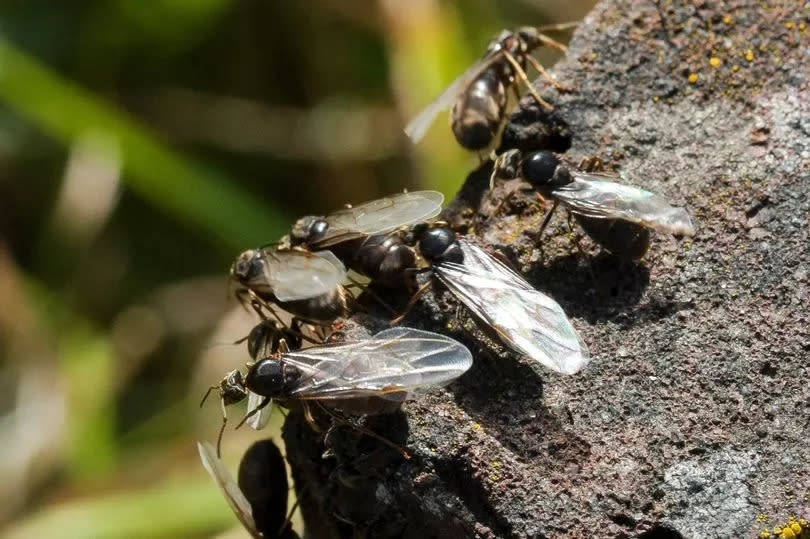'Flying ant day' warning and expert's ways to deal with it

Today is flying ant day. Well not exactly… Occurring up and down the country at different times depending on the weather, wet, humid and windy conditions create the perfect environment for millions of flying ants to simultaneously take to the skies in search of their perfect mate over the next few weeks.
While natural predators may be spoilt for choice, flying ants can be both a nuisance and a source of frustration for the Brits settling down to enjoy their BBQ. Paul Blackhurst, technical academy head at Rentokil Pest control, has explained what flying ant day is, when it is likely to occur and tips for Brits looking to prevent these flying fiends from entering their homes.
He said: “Flying ant day, also known as the nuptial flight and colloquially as ‘flant day’, is a natural phenomenon in which high numbers of ants with wings, called alates, simultaneously take to the skies in search of mates from other colonies. Contrary to its name, ‘flying ant day’ does not occur on a single day each year and such events can occur in different areas of the country when the weather - temperature, humidity, and wind conditions are favourable.
"While you might spot a few flying ants on most warm summer days, optimal weather conditions can lead to the emergence of tens of millions of ants in giant swarms over a span of weeks across Britain. When flying in groups, the insects look similar to rainfall on radars.
"While it can be a temporary nuisance, it is thought that this mass flight helps the ants to overwhelm predators such as swifts and gulls, thereby increasing their chances of survival. Following a wet start to summer this year, followed by the warm weather we’ve been experiencing, the conditions are ripe for bumper swarms.
"Humidity plays a crucial role in the life cycle of ants, particularly during the nuptial flight, keeping their wings and bodies moist as they mate on the wing. Once the mating has taken place, it's all over for the smaller male ants who will fall to the ground and die, while the new, now fertile, queen loses her wings and buries herself underground to form a new nest.
“Flying ants may well be a frustration while you try and enjoy a barbecue, picnic or a relaxing drink in the pub beer garden this summer, but they are also important to the environment – aerating soil, recycling nutrients and providing food for birds.”
How to deal with flying ants
Block entry points by sealing cracks and crevices around doors, windows and pipework
Sweep up food debris from under kitchen appliances and units
Clear up any food or liquid spillages immediately.
Store your food in airtight containers wherever possible.
If you have a pet, clear away any food that isn’t eaten straight away.
Make sure all rubbish bins have tightly sealed lids.
Keeping windows and doors shut is one of the most effective methods of preventing flying insects from entering your home
Installing a fly screen will prevent flying ants from entering your home, whilst still leaving windows and doors open. Use a strong detergent to remove any pheromone trails foraging ants have laid down to direct other ants to a food source.

 Yahoo News
Yahoo News 
